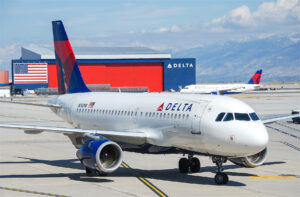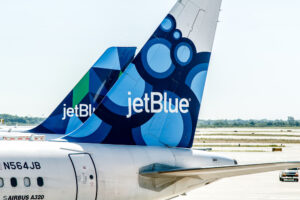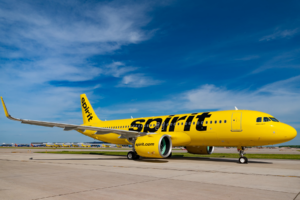'The Economist': Dollar has been toppled as the world's leading currency by air miles
Subscribe
#1
This is a leader in this week's Economist. And what do we make of it?
Frequent-flyer miles
In terminal decline?
Jan 6th 2005
From The Economist print edition
The dollar has already been toppled as the world's leading currency
IN DECEMBER, we warned that the dollar's role as the world's main currency was under threat if America continued in its profligate ways. Yet the dollar has been dethroned even sooner than we expected. It has been superseded not by the euro, nor by the yen or yuan, but by another increasingly popular global currency: frequent-flyer miles. Calculations by The Economist suggest that the total stock of unredeemed frequent-flyer miles is now worth more than all the dollar bills in circulation around the globe.
By the end of 2004 almost 14 trillion frequent-flyer miles had, by our estimate (updating figures from webflyer.com), been accumulated worldwide. But what is a mile worth? Airlines sell them to credit-card firms at an average of just under 2 cents a mile; their value when used to buy a ticket or to upgrade to business class can be anywhere between 1 cent and over 10 cents per mile. Using the mid-point of this range means that the global stock of frequent-flyer miles is now worth over $700 billion, more than all the dollar notes and coins at large. Pedants will complain that we have ignored dollars sitting in bank accounts, but after a couple of free in-flight gin-and-tonics, most frequent-flyers care little about the difference between M0 (the narrowest measure of the supply of miles, or rather, money) and M3.
Copyright � 2005 The Economist Newspaper and The Economist Group. All rights reserved.
Frequent-flyer miles
In terminal decline?
Jan 6th 2005
From The Economist print edition
The dollar has already been toppled as the world's leading currency
IN DECEMBER, we warned that the dollar's role as the world's main currency was under threat if America continued in its profligate ways. Yet the dollar has been dethroned even sooner than we expected. It has been superseded not by the euro, nor by the yen or yuan, but by another increasingly popular global currency: frequent-flyer miles. Calculations by The Economist suggest that the total stock of unredeemed frequent-flyer miles is now worth more than all the dollar bills in circulation around the globe.
By the end of 2004 almost 14 trillion frequent-flyer miles had, by our estimate (updating figures from webflyer.com), been accumulated worldwide. But what is a mile worth? Airlines sell them to credit-card firms at an average of just under 2 cents a mile; their value when used to buy a ticket or to upgrade to business class can be anywhere between 1 cent and over 10 cents per mile. Using the mid-point of this range means that the global stock of frequent-flyer miles is now worth over $700 billion, more than all the dollar notes and coins at large. Pedants will complain that we have ignored dollars sitting in bank accounts, but after a couple of free in-flight gin-and-tonics, most frequent-flyers care little about the difference between M0 (the narrowest measure of the supply of miles, or rather, money) and M3.
Copyright � 2005 The Economist Newspaper and The Economist Group. All rights reserved.
#2
Quote:
Real mileage junkies check their statements every day, sometimes more than once. Originally Posted by gorilla
Mileage junkies check their statements every month.

#3
Quote:

True - I must be crazy; I have checked mine everyday this week even though I have not taken any flights and am not waiting for any miles to be posted Originally Posted by OB one
Real mileage junkies check their statements every day, sometimes more than once. 

 Do I need a psychiatrist?
Do I need a psychiatrist?
#4
Quote:
Yes. Originally Posted by ani90
Do I need a psychiatrist?

#5
last2board , Jan 8, 2005 1:06 pm
Do I need a psychiatrist?[/QUOTE]
Yes or you could undergo group therapy here -- not likely to cure you, but you will learn that you are not alone in your obsessive/compulsive behavior.
Yes or you could undergo group therapy here -- not likely to cure you, but you will learn that you are not alone in your obsessive/compulsive behavior.

#6
Quote:

 Do I need a psychiatrist?
Do I need a psychiatrist?
Originally Posted by ani90
True - I must be crazy; I have checked mine everyday this week even though I have not taken any flights and am not waiting for any miles to be posted 
 Do I need a psychiatrist?
Do I need a psychiatrist?
these are the most important times to check -- this is when you get those "unexpected miles" from some promo you totally forgot about.
anyone else surprised that there are only 700 billion dollars in circulation, btw?
#7
Hmmmm. The last time the Economist wrote an article like this is spawned scores of copycat articles over the next six months and brought forth seemingly hundreds of "experts" to FT over that time using the articles as "proof" of their extensive knowledge of FF programmes and miles. I wonder if it will happen again?
#8
Quote:
anyone else surprised that there are only 700 billion dollars in circulation, btw?
Economist quote says "dollar bills". Maybe it means "1 dollar bills" !Originally Posted by haveric
these are the most important times to check -- this is when you get those "unexpected miles" from some promo you totally forgot about.anyone else surprised that there are only 700 billion dollars in circulation, btw?
#9
Quote:
It begins... Originally Posted by hfly
Hmmmm. The last time the Economist wrote an article like this is spawned scores of copycat articles over the next six months

http://www.guardian.co.uk/business/s...385847,00.html
Quote:
The gold standard of sterling is long forgotten and now the supremacy of the greenback has been surpassed. The world has a new global currency - airline frequent flyer miles, which have a greater total value than dollars, euros, pounds or yen.
Doled out by airlines to seasoned travellers, they are intended to be redeemed for tickets as a reward for loyalty. But since their invention in 1981, their popularity has spawned its own economy of trading schemes, charitable donations, enthusiasts and scams.
By the end of 2004, almost 14 trillion frequent flyer miles had been accumulated worldwide, worth between 1p and 6p apiece.
The gold standard of sterling is long forgotten and now the supremacy of the greenback has been surpassed. The world has a new global currency - airline frequent flyer miles, which have a greater total value than dollars, euros, pounds or yen.
Doled out by airlines to seasoned travellers, they are intended to be redeemed for tickets as a reward for loyalty. But since their invention in 1981, their popularity has spawned its own economy of trading schemes, charitable donations, enthusiasts and scams.
By the end of 2004, almost 14 trillion frequent flyer miles had been accumulated worldwide, worth between 1p and 6p apiece.
#10
I did not ever think I can laugh after reading an article in the Economist. 
But this misses a crucial point. Central banks and finance ministries have a far greater interest in defending the value of frequent-flyer miles than in propping up the dollar. After all, their officials are continually criss-crossing the globe to attend meetings, racking up miles in their personal accounts. If their free first-class flight to the Caribbean is at risk, they are likely to fight to the death to stop a devaluation. Against such competition, the dollar does not stand a chance.

But this misses a crucial point. Central banks and finance ministries have a far greater interest in defending the value of frequent-flyer miles than in propping up the dollar. After all, their officials are continually criss-crossing the globe to attend meetings, racking up miles in their personal accounts. If their free first-class flight to the Caribbean is at risk, they are likely to fight to the death to stop a devaluation. Against such competition, the dollar does not stand a chance.


















